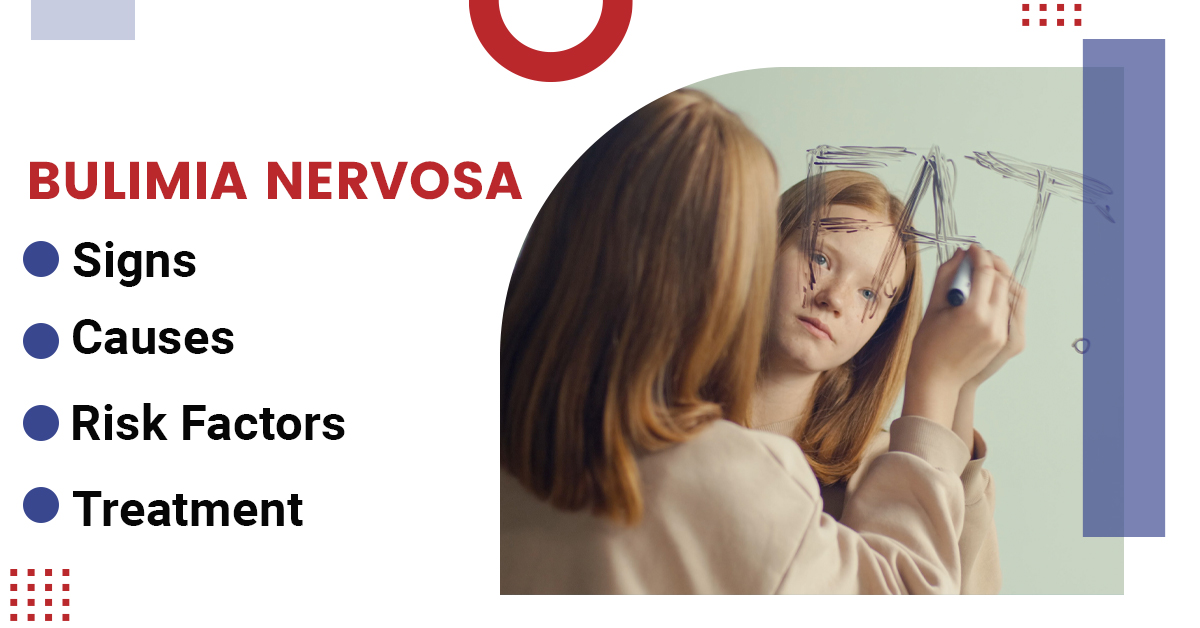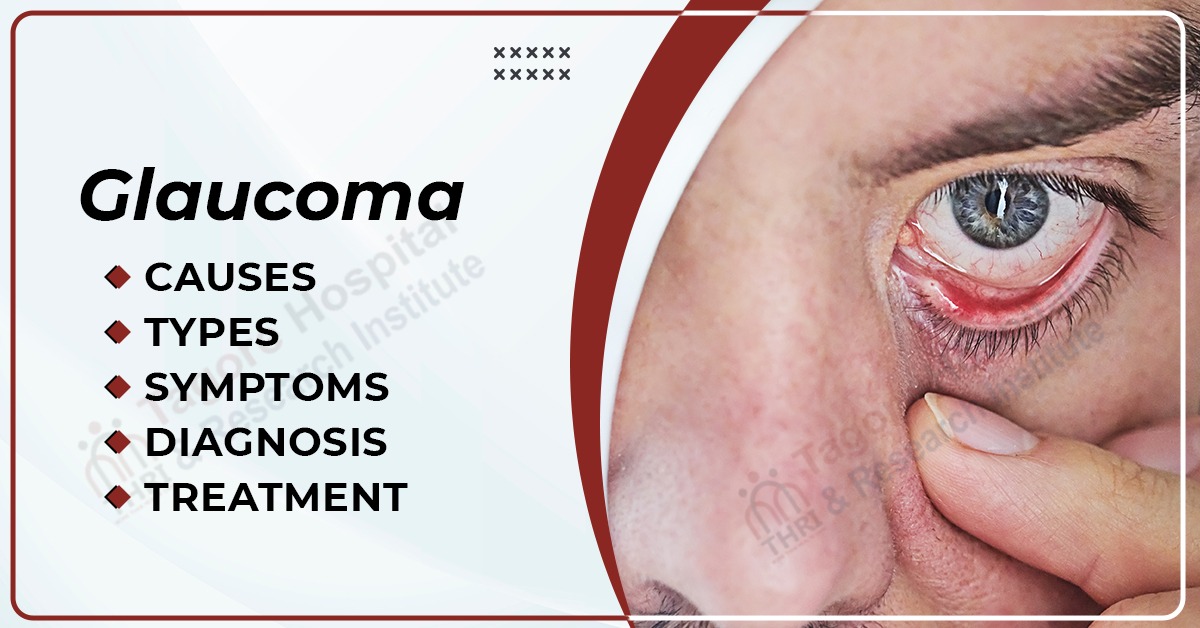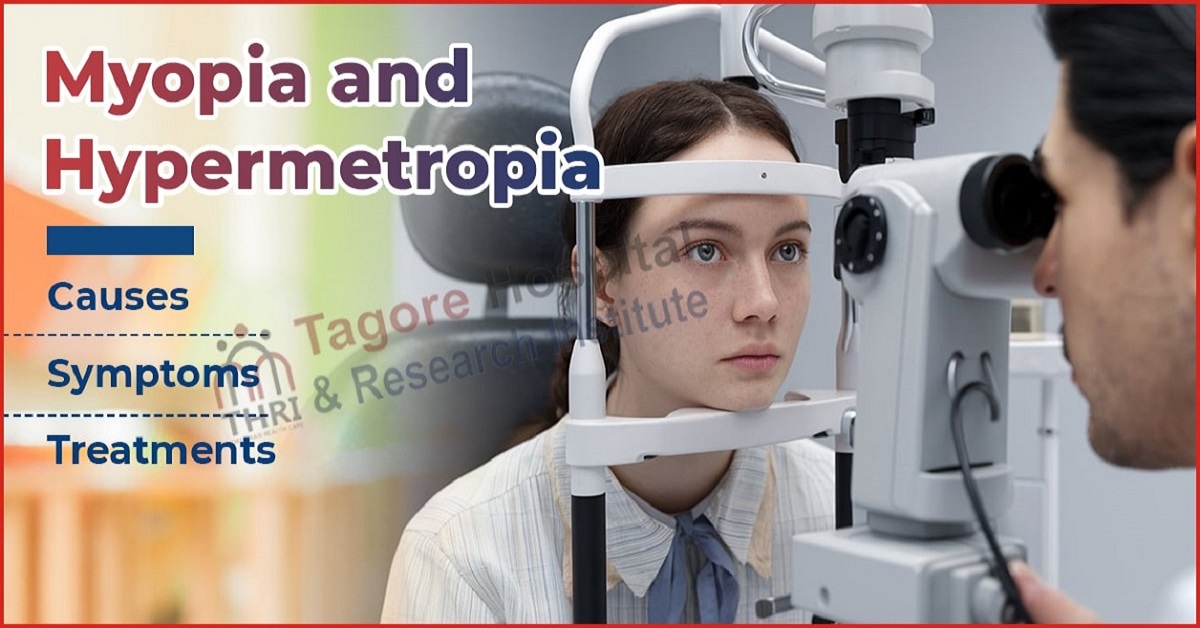- By THRI admin
- Posted October 18, 2022
What is Bulimia Nervosa?
Bulimia Nervosa, often known as bulimia, is a severe eating condition that can be fatal. Bulimics may purge after surreptitiously bingeing on a big amount of food and losing control over their eating in an unhealthy attempt to burn off the additional calories.
Bulimics may employ a variety of techniques to burn calories and avoid gaining weight. For instance, following bingeing, you might frequently self-induce vomiting or abuse laxatives, diet pills, diuretics, or enemas. Or you can use other methods like fasting, severe diets, or intense activity to burn calories and avoid gaining weight.
Bulimics frequently worry about their weight and physical appearance. You might hold a harsh and critical opinion of yourself because of your perceived inadequacies. Bulimia can be challenging to recover from because it has more to do with one's self-image than just food. However, a successful course of treatment can assist you in feeling better, changing your eating habits, and reversing significant issues.
Symptoms of Bulimia Nervosa:
People with bulimia nervosa frequently have a body mass index that medical professionals deem healthy (BMI). This can make it challenging to determine if someone has bulimia.
Bulimics consume a lot of food in a short amount of time. They then act to make up for it by fasting, exercising excessively, throwing up, or taking laxatives or diuretics. Additionally, they could worry about putting on weight, go through mood swings, and retreat socially.
Physical indications and symptoms can be caused by chemical imbalances, nutritional inadequacies, and impacts on the digestive system. These might emerge gradually and consist of
- brittle nails.
- dry hair and skin.
- weakness.
- fatigue.
- dental issues as a result of the effects of gastric acid on teeth.
- irregular menstruation.
- swollen lymph nodes.
- constipation and other bowel-related issues.
- a persistently inflamed.
- sore throat.
- swollen salivary glands in the neck and jaw.
- acid reflux.
- kidney problems.
- muscle spasms.
- bones susceptible to osteoporosis fractures.
- imbalance in electrolytes, which raises the possibility of a heart attack or stroke
- heart problems.
- severe dehydration.
- Seizures.
Bulimia frequently co-occurs with other mental health issues including anxiety or sadness. These can also result in complications in the absence of treatment.
There are a variety of symptoms that, according to the National Eating Disorders Association (NEDA), could let someone else know that a person has bulimia. Here are a few examples:
- extreme preoccupation with dieting, weight loss, and food control.
- disappearing food
- showing up in unexpected locations.
- Empty food packaging in the trash is one indication that someone is eating
- Secretively.
- frequent trips to the restroom immediately following meals.
- indicators of persistent vomiting
- eating little or alone with others when dining.
- rituals involving food or eating, such as overly chewing or sticking to a single food category.
Risk Factors of Bulimia Nervosa:
Anyone can be impacted by bulimia, regardless of age or weight. According to research, bulimia will affect about 1.5 percent of women and 0.5 percent of men at some point in their lives. The median age of onset is thought to be around 12 years old, and it seems to affect women more frequently.
Risk factors may include:
- social factors.
- biological makeup.
- genetics.
- psychological well-being.
Furthermore, some individuals who struggle with bulimia can also have a past including anorexia nervosa or another eating problem.
Causes of Bulimia Nervosa:
Like other eating disorders, bulimia nervosa is complex, which means that it can have a variety of underlying causes, such as genetics, neurochemical imbalances, and environmental stressors like abuse or trauma exposure.
A person who is inclined to have an eating disorder is also known to be affected by other psychological and emotional problems, such as anxiety condition, sadness, and low self-esteem. Our culture is hyperfocused on internalizing the thin ideal, and the broad social pressure to be thin might act as a trigger for those who are vulnerable.
Other risk factors for bulimia nervosa have been found, including substance abuse, insecurities, early puberty, not eating enough as a child, mental symptoms, and low appetite and emotional awareness.
Bulimia nervosa sufferers frequently try to conceal their disease out of fear of being criticized or rejected by others, so unless you are an expert at spotting the warning symptoms and risk factors, it may be challenging to determine if an eating disorder is prevalent in this population.
- social exclusion
- Mood or personality change.
- refusing to consume food in public.
- talking about food or weight all the time.
- impulsive actions
- excessive or new drug or alcohol consumption.
- the pursuit of excellence.
- a severe dread of gaining weight.
- obsession with one's appearance.
- Compulsions such as calorie counting and weight tracking.
- body image distortion.
- engaging in ceremonial actions while consuming food.
- regularly measuring oneself.
- cutting off communication with the outer world.
- refusing to dress in provocative or vivid colors.
- hiding or storing food.
- obsession with plain, loose-fitting garments.
Bulimia Nervosa Diagnosis:
Bulimia is often diagnosed by a doctor using several tests. They might perform a physical examination first. They could also ask for urine or blood testing.
They will better comprehend your relationship with food and body image with the aid of a psychological assessment.
The physician will also apply the Diagnostic and Statistical Manual of Mental Disorders criteria (DSM-5). The DSM-5 is a diagnostic tool for identifying mental diseases using accepted terminology and standards.
The criteria used to diagnose bulimia include:
- repeatedly bingeing on food.
- Purging regularly may involve fasting, intense activity, laxative abuse, or vomiting.
- determining one's worth by size and physique.
- binge eating and purging that takes place for three months on average at least once a week.
- not suffering from anorexia.
Bulimia is categorized by the DSM-5 as mild, moderate, or severe:
- Mild: 1 to 3 episodes per week
- Moderate: 4 to 7 episodes per week
- Severe: 8 to 13 episodes per week
- Extreme: 14 or more episodes per week
Complications of Bulimia Nervosa:
Your body may not receive the nutrition it needs if you have bulimia. Bulimia nervosa can lead to a wide range of consequences, including.
- stomach and throat ulcers
- decay and cavities in teeth.
- tears and esophagitis, an inflammation of the esophagus
- Damage to your stomach and intestines.
- Elevated electrolyte levels
- irregular heartbeat (arrhythmia).
- a heart attack.
- increased suicide risk
How can prevent bulimia nervosa?
Although there is no surefire way to stop bulimia, you can influence someone to adopt healthier habits or seek professional help before things get out of hand. This is how you can assist:
- No of their size or shape, encourage and reinforce a positive body image in your kids. Encourage them to develop their confidence in areas other than beauty.
- Enjoy frequent meals together as a family.
- Don't discuss weight at home. Rather than focusing on unhealthy habits, lead a healthy lifestyle.
- Encourage appropriate weight-control behaviors instead of dieting, especially when it comes to fasting, using laxatives or supplements to lose weight, or inducing self-induced vomiting.
- Consult your primary care physician. He or she might be in a good position to spot early signs of an eating disorder and contribute to its prevention.
- Consider supportively discussing these difficulties with the person and asking how you can help if you notice a relative or acquaintance who appears to have food issues that could presage or signal an eating disorder.
Bulimia Nervosa Treatment:
Your doctor will take into account both your physical and psychological needs when treating bulimia. Counseling and medication are possible treatment options. A group of experts in medicine, nutrition, and mental health is frequently involved. They'll make an effort to aid you in regaining your health and wholesome eating habits.
Medical treatments:
- Medications. The FDA has given the antidepressant fluoxetine (Prozac) approval to treat bulimia. Doctors may occasionally suggest other antidepressants or types of medications.
- Hospitalization. This doesn't occur frequently. However, if your bulimia is severe, you might need to receive short-term hospital treatment. The majority of eating disorder treatments provide outpatient care.
Psychotherapy:
- Behavioral and cognitive therapy (CBT). You learn healthy eating habits and how to recognize triggers for binges and purges in this sort of therapy. As they appear, you question erroneous beliefs and bad habits.
- Family-centered care (FBT). It helps the family deal with the condition and the problems it might cause and is frequently utilized in adolescents and teens with bulimia.
- Interpersonal counseling (IPT). This focuses on issues you may be having in your connections with other individuals. Your emotional state and mental health might be impacted by how you connect with other people.
Nutritional Therapy:
To learn to identify your body's hunger and fullness cues, you engage with a dietician. They assist you in maintaining your weight and developing a more positive relationship with food.
Self-care for Bulimia:
In addition to adhering to your course of treatment and therapy, you can take care of yourself.
- Take care of your physique. To ensure that you are getting the nutrients you need, include healthy foods in your diet. To find out if supplements are right for you, consult your doctor. Additionally, find out from your doctor how much activity is healthy for you.
- Relate to others. You may break bad behaviors and improve your self-esteem with the help of friends and family. A support group may also be beneficial. There are several, according to the National Association of Anorexia Nervosa and Associated Disorders. Additionally, you can contact the National Eating Disorders Association by phone, text, or chat.
- Prevent being triggered. Don't spend too much time looking at social media pictures of people with unrealistically thin bodies. Avoid using the scale and the mirror. If boredom or stress lead to binges, work on finding more positive methods to handle these situations.
Tags




